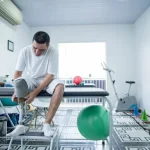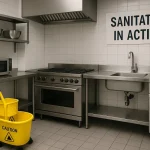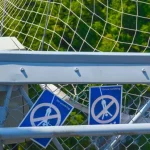Dental emergencies can happen without warning and cause a lot of stress. Knowing how to respond quickly can help ease pain and prevent lasting damage. Families, especially those with children, need to be ready for these unexpected moments.
A chipped tooth, sudden swelling, or a lost filling can all require fast action. Staying calm and acting wisely can make a big difference. This guide will walk you through simple, effective steps for common dental emergencies.
Read on to prepare your family for any urgent dental situation.
Stay Calm and Reassure the Patient
In any emergency, staying calm is the first step. Children especially look to adults for guidance during stressful moments. Keep your voice steady and reassuring to reduce fear. Panic can make the situation worse and lead to mistakes.
Take a deep breath and focus on helping. If the injured person is crying or in pain, comfort them gently. Let them know help is on the way or being arranged. Speak slowly and clearly to give instructions. A calm presence can ease the discomfort and fear for everyone involved.
Assess the Situation Quickly
Look at the injury to see how serious it is. Check for bleeding, broken teeth, or swelling. Try to find out where the pain is coming from. Ask if the pain is sharp, throbbing, or constant.
Look inside the mouth to check for loose teeth or broken parts. If a tooth is missing, try to locate it. Take note of any other injuries, especially on the lips or gums. The more you observe, the better you can explain things to the dentist. Quick assessment helps you take the right next step.
Stop Any Bleeding Immediately
Bleeding in the mouth can seem worse than it is. Use a clean cloth or sterile gauze to press on the area. Apply gentle but firm pressure for several minutes. If the bleeding doesn’t stop, continue pressing and call for help.
Avoid using tissue paper, which can fall apart. Cold compresses can help slow bleeding and reduce swelling. Ask the person not to spit or rinse too much. Keeping pressure on the wound is the key. Stay with them and continue to monitor the situation.
Handle Knocked-Out Teeth Properly
Respond quickly if a tooth is knocked out. Take it by the top rather than the base. If it’s soiled, rinse it gently with water. Don’t use soap or scrub. If at all possible, attempt to replace the tooth in its socket. Store it in milk or a saline solution if that isn’t possible.
Call a dentist right away to increase the chance of saving the tooth. Seeking a same-day emergency dental appointment can help preserve the tooth and prevent further complications.
Relieve Pain Without Causing Harm
Pain is common in dental emergencies. Use over-the-counter pain relief if needed, but follow the correct dosage. Avoid placing aspirin directly on gums or teeth-it can cause burns. A cold pack on the cheek can reduce swelling and numb the area. Keep the head slightly raised to reduce blood flow to the area.
Distraction techniques like deep breathing or music can also help. Don’t poke at the painful spot with fingers or objects. Stay gentle when cleaning around the sore area. Focus on comfort until professional help arrives.
Avoid Using Home Remedies That Aren’t Safe
Some home remedies can do more harm than good. Avoid using clove oil or alcohol directly on gums. Don’t apply heat to a swollen area. Putting objects in the mouth, like cotton balls soaked in liquid, can be dangerous.
Stick to cold compresses and clean water rinses. Homemade treatments can cause infections or burns. Always read labels and warnings before using any product. When in doubt, wait for a dentist’s advice. Keeping things simple and safe is the best route.
Protect the Mouth After an Injury
Mouth guards or soft cloth can help shield injured areas. Avoid chewing on the side where the injury occurred. Encourage soft foods and plenty of water. Use a straw if drinking causes discomfort. Keep the mouth clean with gentle rinses.
Don’t brush hard around the injured spot. Let the area rest to prevent more damage. Watch for signs of infection like redness or pus. Call a dentist if the area doesn’t improve in a day or two.
Know When to Go to the Dentist Right Away
Some dental problems need urgent care. If there is severe pain, swelling, or bleeding that won’t stop, get help fast. Loose teeth in adults are also a red flag. Injuries to the face or jaw may need both dental and medical care. If a child has a baby tooth knocked out, ask the dentist what to do.
Fever along with tooth pain can mean infection. Don’t delay if the injury affects eating, speaking, or sleeping. Even minor-looking problems can grow worse quickly. When in doubt, it’s safer to call a dental clinic.
Prevent Further Injury While Waiting
Keep the person seated and calm. Limit talking and movement of the mouth. Remove any food or debris gently. Ice packs can help reduce swelling. Don’t let them chew gum or eat hard food.
Use gauze to protect broken areas. Keep their hands away from the mouth. Stay close and watch for signs of shock or distress. Always prepare to transport them safely to the dentist.
Watch for Signs of Infection
Infections can spread quickly in the mouth. Look for swelling, heat, or pus. Red streaks on the face or neck are signs of danger. A fever with tooth pain is also a warning. Bad breath that won’t go away could mean bacteria are growing.
If the area becomes more painful over time, call the dentist. Don’t wait to see if it goes away on its own. Infections in the mouth can reach other parts of the body. Treat early for the best results.
Keep Emergency Dental Supplies at Home
A dental first aid kit is a smart idea. Include gauze, a small container with a lid, saline solution, and pain relievers. Have the dentist’s phone number written down.
Gloves, tweezers, and a flashlight are also helpful. Keep everything in one place that’s easy to find. Teach family members where it is. Refresh the supplies regularly. Being prepared can ease panic and save time.
Teach Children What to Do
Even young kids can learn the basics. Show them how to rinse with water and apply a cold pack. Teach them to tell an adult right away if there’s an injury. Practice staying calm with role-play or stories.
Let them know not to touch or wiggle a sore tooth. Make sure they know where the emergency supplies are. Encourage them to be careful while playing or eating. Building awareness early helps them act wisely.
Responding to Broken Braces or Wires
Broken dental devices can be painful. Use orthodontic wax to cover sharp parts. If a wire is poking, use a pencil eraser to push it down gently. Don’t cut wires on your own. Rinse the mouth and avoid hard or sticky foods.
Call the orthodontist as soon as possible. Loose brackets can be temporarily held in place with wax. Avoid tugging or pulling at anything. Try to keep the device stable until it’s repaired.
Managing Lost Fillings or Crowns
When a filling or crown falls out, it leaves the tooth exposed. Avoid chewing on that side. Rinse the mouth with warm water. Over-the-counter dental cement can offer short-term coverage. Don’t try to glue it back in with regular glue.
Keep the crown if it’s in one piece and bring it to the dentist. Cover sharp edges with dental wax if needed. Pain may increase with temperature changes. See the dentist as soon as possible to restore protection.
Handling a Toothache at Night
Tooth pain can seem worse at night. Rinse the mouth with warm salt water. Use a cold compress on the cheek to ease the pain. Try sleeping with your head elevated.
Avoid hot, cold, or sweet foods. Take pain medicine only as directed. Keep distractions around to help pass the time. Don’t put aspirin directly on the gums. Call a dentist first thing in the morning.
Preventing Future Emergencies
Many dental emergencies are avoidable. Regular dental checkups can catch problems early. Use mouthguards during sports. Avoid chewing ice or hard candy. Teach kids not to use teeth as tools.
Address small issues like minor pain right away. Practice good brushing and flossing habits. Choose soft foods after dental work. Replace worn-down dental devices. Prevention saves money and pain.
Make a Family Emergency Plan
Having a plan keeps everyone ready. Write down emergency contacts and place them in a visible area. Know which dental office handles after-hours calls. Practice simple responses with kids. Keep the dental first aid kit stocked.
Set reminders to refresh pain medicine and supplies. Plan who will drive and who stays with the injured person. Update the plan every year or when your family moves. Being prepared brings peace of mind.
Learn to Manage FamilyDental Emergencies
Dental emergencies can be stressful, but knowing how to respond makes a big difference. By staying calm, acting quickly, and following these family-focused tips, you can help prevent lasting damage and ease pain.
Preparation, knowledge, and the right support are all you need to manage unexpected dental problems with confidence. Keep these tips in mind so you can protect your loved ones when it matters most.
Ready for more? Dive into our blog.







